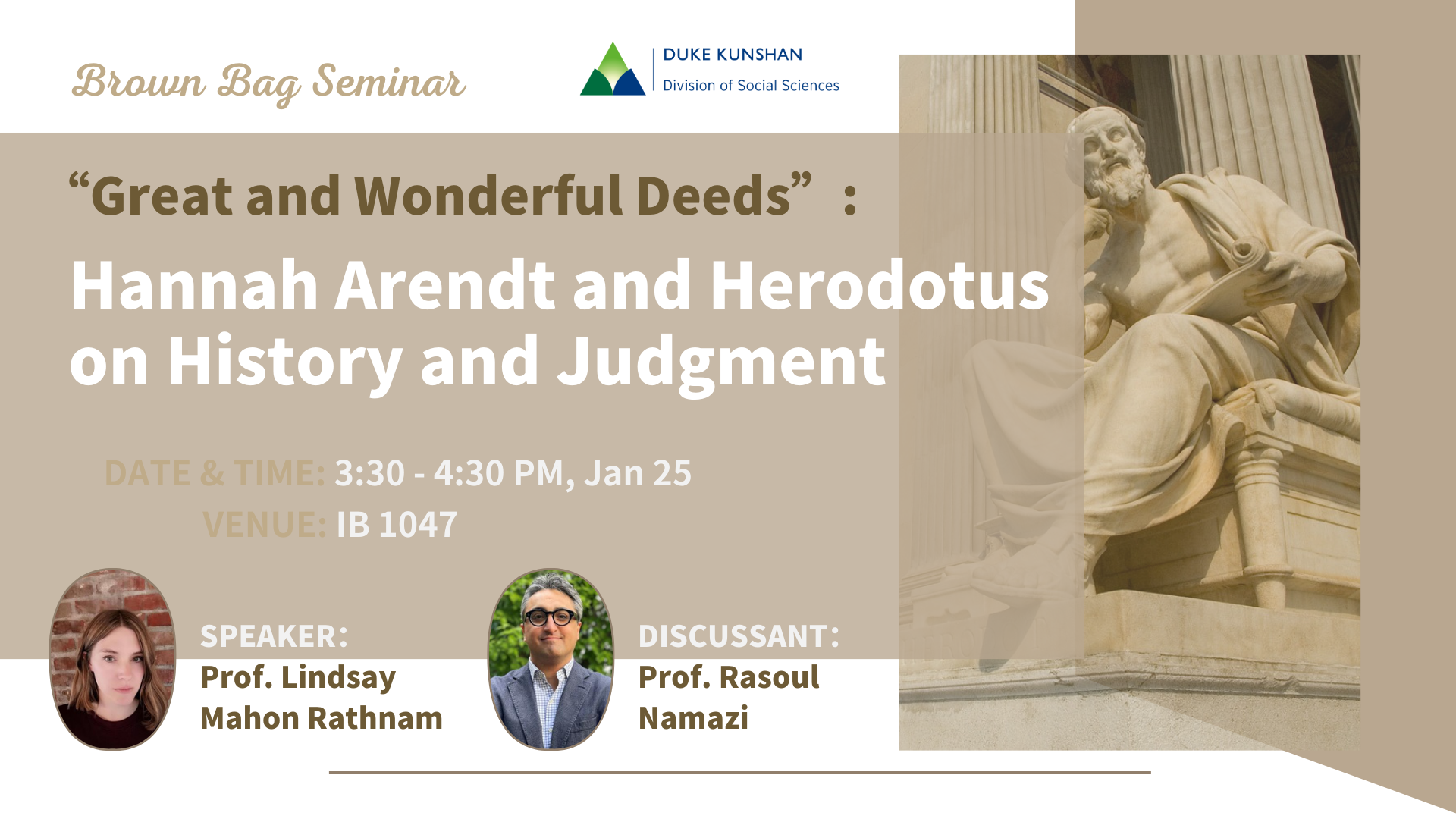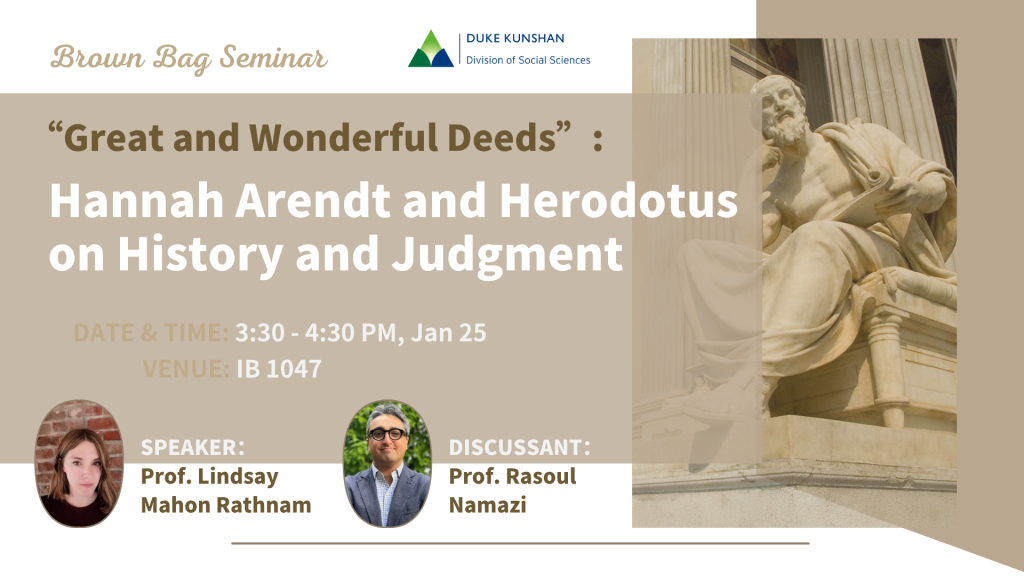
“Great and Wonderful Deeds”: Hannah Arendt and Herodotus on History and Judgment
Abstract:
This paper revisits Hannah Arendt’s influential yet unwritten theory of judgment in order to offer a new perspective on the contentious debate on the universality of values. Judgment, according to Arendt, emphasizes ‘thinking the particular’ in order to avoid the pitfalls of relativism and universalism. This paper draws attention to the underexplored influence of Herodotus’ Histories in Arendt’s account of judgment. Herodotus practices histories in the ancient sense – an inquiry into human nature facilitated by his survey of particular deeds and events. Reading his conception of judgment alongside Arendt’s suggests that some of Arendt’s fears about the stultifying effects of universal claims are misplaced, and judgment need not reject all universal claims. Instead, it can be motivated and informed by an aporetic and non-ideal vision of universal human capacities.




